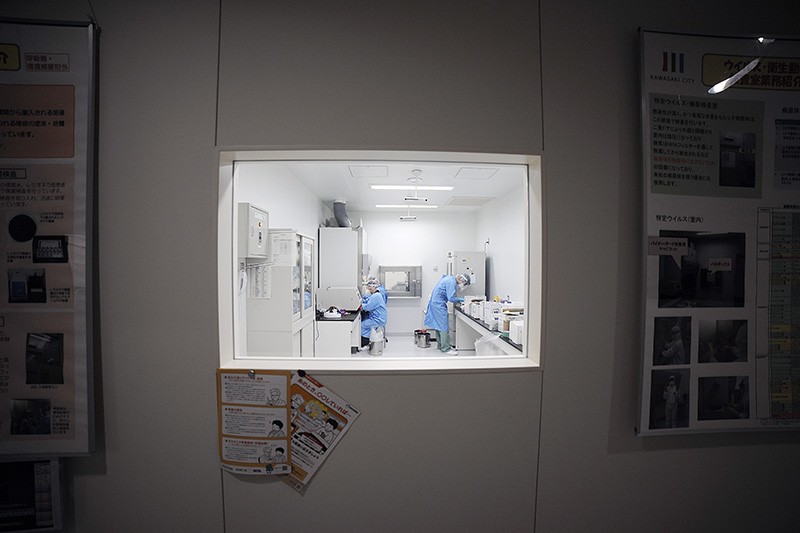Like millions of others, neuroscientist Lis Evered felt her career threatened by the COVID-19 pandemic. But her concern was not over security and funding. It went deeper — to her motivation and purpose as a scientist.
“I was carrying around this burden of thinking that I’m a complete failure because I’m not leading the charge on curing COVID. It felt like my work was not important anymore,” she says.
Evered, who is at Weill Cornell Medicine in New York, studies peri-operative cognitive disorders in older people – such as delirium after surgery — and she felt sidelined as colleagues and journals pivoted towards research with more obvious relevance to fighting COVID-19. But then she came across a word that changed her perspective: ‘covidization’. “I felt a weight lift off me,” she says.
Coined in April by Madhukar Pai, a tuberculosis researcher at McGill University in Montreal, Canada, covidization describes the distorting impact of the pandemic on the way science is funded, produced, published and reported on. Pai was worried that the pandemic would force countries, funders, health agencies and researchers to focus too much on infectious threats of pandemic significance. Research into other factors vital for public health, from non-infectious diseases to climate change, could lose out.
For Evered, who came across the word in an article Pai wrote in July, it gave her the confidence that non-COVID-19 science was still a worthy pursuit.
Funding priorities
Covidization of research does have benefits: extra funds are one. By April, the European Commission alone had committed €137.5 million (US$165 million) to scientists working on the pandemic, which is more than it spent on research into HIV/AIDS, tuberculosis and malaria in 2018. The money is speeding vaccine development, and funding research into topics such as mental health and the effect of social inequality on the pandemic. But Pai argues that this sudden shift in priorities and surge of activity is also harming the research enterprise. “There is a fear of missing out,” he says. “And it’s turned into a feeding frenzy.”
Pai identifies three problem areas within covidization. The first is funders diverting or delaying money from curiosity-driven research and handing it to pandemic-related proposals. The Canadian Institutes of Health Research cancelled its annual spring grant competition in April because of the pandemic, and soon after announced a new Can$108 million (US$83 million) scheme to fund projects “responding to the current phase of COVID-19 pandemic”. (The agency did subsequently review and fund the original spring grants.)
Covidization of research is even distorting efforts to protect global health, says Colin Carlson, a biologist at Georgetown University in Washington DC. “I don’t think a model in which folks who work in that field, like myself, try to ride the funding wave necessarily helps,” Carlson says.
Conservation and wildlife organizations are using COVID to reframe basic research on deforestation, biodiversity loss and the wildlife trade as pandemic-preparedness, he adds. “Everyone is trying to sell what they’re doing as COVID and that dilutes the work that people are doing,” he says.
COVID trespassers
The second problem is scientists from different fields now researching and publishing on epidemiology, infectious diseases and immunology — areas in which they might be poorly qualified.
And the third is that, given the deluge of research done under the umbrella of COVID-19 often published as unreviewed preprints it’s increasingly hard for the public, media and policymakers to distinguish reliable evidence from the rest.
A study on the “carnage of substandard research” by Katrina Bramstedt, a bioethicist at the Luxembourg Agency for Research Integrity and Bond University in Gold Coast, Australia, found that 19 published articles and 14 preprints about COVID-19 have been retracted, withdrawn, or had an expression of concern issued by the end of July.
When people divert from their primary field, say nuclear physics, to work on COVID, they are prone to make mistakes because they lack the expert-level insight, Pai says. Blogs and preprint servers mean that half-baked ideas and poor-quality research do not have to pass peer review, he says. For instance, studies from non-experts have appeared on how eating cucumber and cabbage can protect against the coronavirus. “They get quoted, they get into the media and then it’s mayhem,” Pai says. “So an average policymaker or journalist is really struggling to know who to believe.”
Off-piste study
Scientists straying from their field of expertise in this way is an example of what Nathan Ballantyne, a philosopher at Fordham University in New York, calls “epistemic trespassing”. While scientists might romanticize the role and occasional genuine insight of an outsider — such as the writings of physicist Erwin Shrödinger on biology — in most cases, he says, such academic off-piste manoeuvrings dump non-experts head-first in deep snow.
Many trespassers have good intentions Ballantyne says, and crossing disciplinary lines can be positive for research. Many researchers have found productive new directions for their own work. But he says that outsiders should collaborate with a genuine expert — and that studies that do not list such an expert as a co-author should raise a red flag to other researchers and the media.
Some research funders have recognized the threat of covidization. Matthias Egger, president of the National Research Council of the Swiss National Science Foundation warned earlier this year of the “instant experts” thrown up by the pandemic. “Colleagues who had spent their academic careers far removed from viruses and lung inflammation have now miraculously revealed themselves as experts,” he wrote in an opinion piece. Throwing money at COVID-19 at the expense of other science could be a mistake, he said, and researchers should concentrate on the questions they decided to pursue. “There will be no covidization of research here,” he said.
“Whether your chosen field is the coelacanth, exoplanets, social inequality or global warming, please keep doing what you do.”
"that" - Google News
December 03, 2020 at 03:29AM
https://ift.tt/3olFjhp
Scientists fear that 'covidization' is distorting research - Nature.com
"that" - Google News
https://ift.tt/3d8Dlvv


Tidak ada komentar:
Posting Komentar